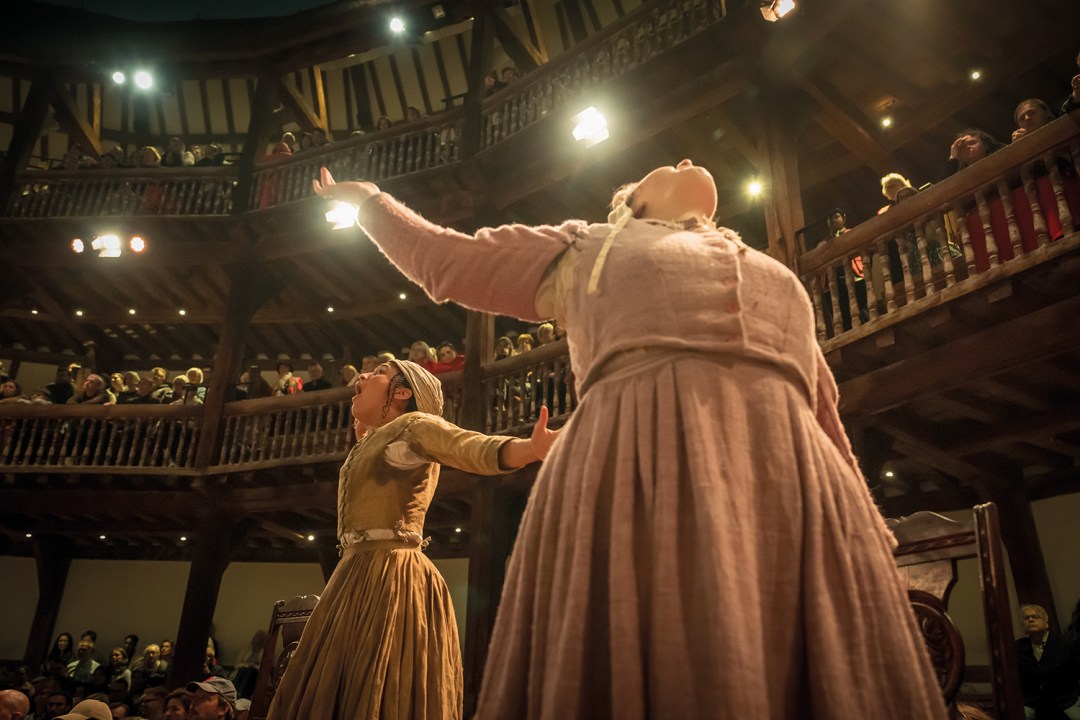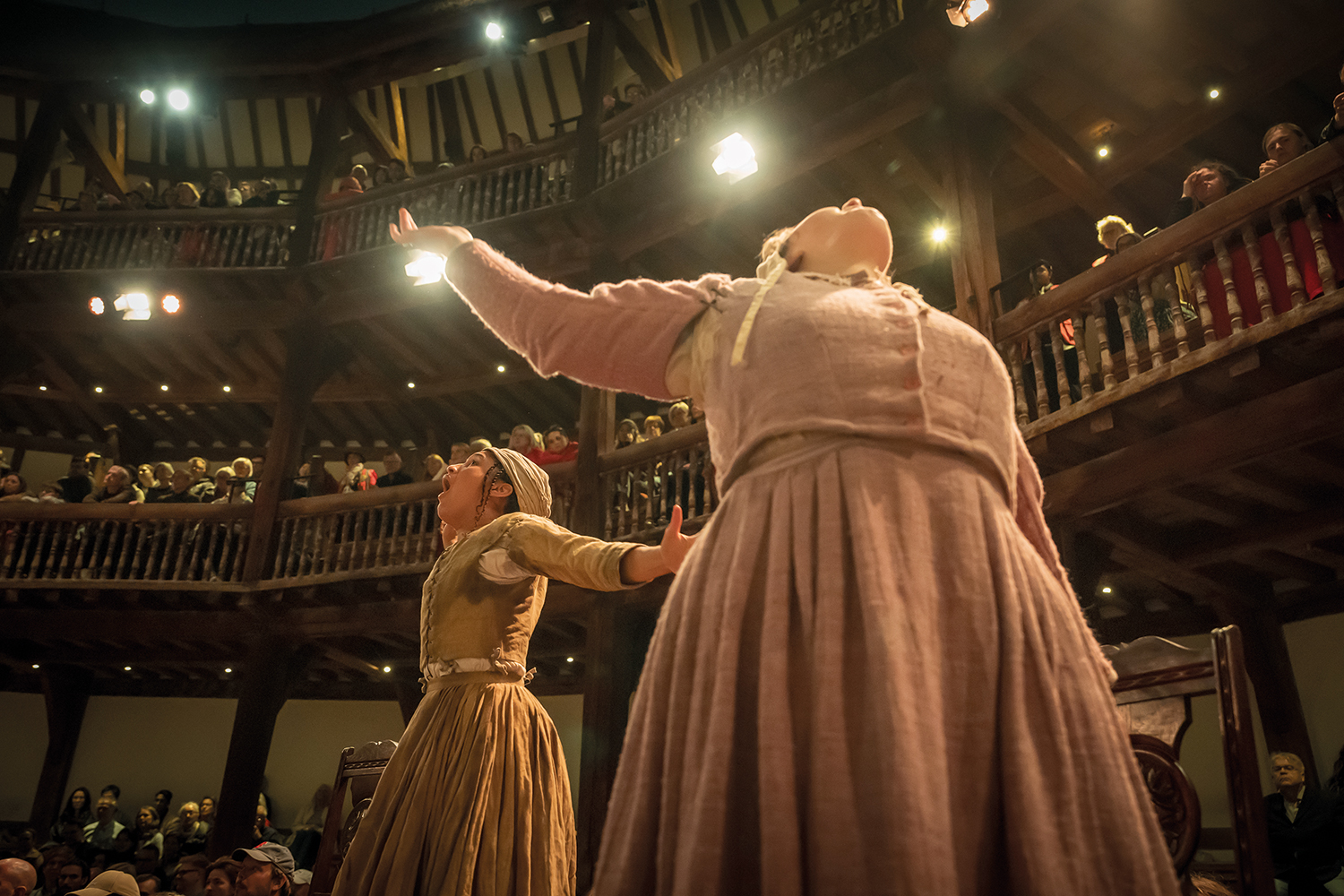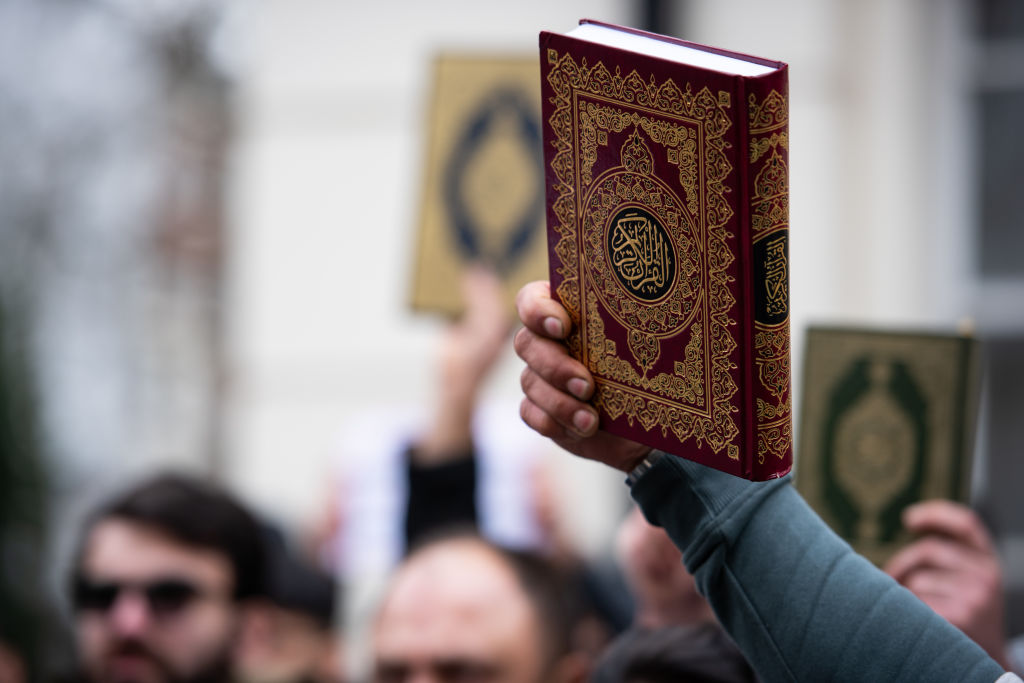
Sanity returns to the Globe. Recent modern-dress productions have failed to make use of the theatre’s virtues as a historical backdrop. The Crucible by Arthur Miller is set in the 1690s (about a century after Shakespeare’s heyday) and the script works beautifully on this spare, wooden stage. To make the groundlings feel involved, the playing area has been extended into the pit with two separate platforms for the judges and the witnesses. James Groom, as Willard the demented jailer, terrifies the crowd by striding around the arena, barking madly at anyone who gets in his way. It grabs your attention.
The dashing Gavin Drea (John Proctor) looks terrific in the lead role alongside Phoebe Pryce as his mistrustful, nervy wife, Elizabeth. Both play their parts with strong Irish accents. Which is a puzzle. How did this nice couple from Ireland settle in a hard-line Protestant community where everyone has Anglo-Saxon roots (apart from Tituba who comes from Barbados)? Their diction is not always a perfect match for Miller’s language. Among the younger cast, Bethany Wooding stands out as the frivolous, scheming turncoat, Mary Warren. Steve Furst, who used to play the spoof nightclub crooner, Lennie Beige, has transformed himself into Reverend Parris. And he’s excellent as the two-faced, priggish control freak.
There are no dud performances in Ola Ince’s brilliant production. Howard Ward brings a canny warmth to the role of Giles Corey. The wonderful Jo Stone-Ewings (Reverend Hale) starts as a prickly despot and ends up as a penitent hero who admits his mistakes. The website calls the show a ‘must-see thriller’ but that only tells half the story.
This production is often wildly funny. The craziness of the accusations and the increasingly preposterous manoeuvrings of the clerics offer us a glimpse of human hypocrisy at its worst and most absurd. If you get a chance, see it. Bring your friends. Drag some teenagers along. Use a cattle prod if necessary. This is what the Globe is for.
Little Brother, based on Ibrahima Balde’s 2021 memoir, has been dramatised by Timberlake Wertenbaker. It reveals the gruesome truth about migration from Africa to Europe. Ibrahima enjoys a pleasant life in Guinea where he lives on a farm with his mother and two siblings. He attends the village school and he spends his spare time doing casual work in a thriving town nearby.
It sounds like paradise but Ibrahima gets itchy feet. He sets off to find his brother who has vanished. Sadly, Ibrahima is a clueless bumpkin who knows nothing about anything. And he narrates his story at a soporific pace. ‘Water from the well is very heavy,’ he says, in a robotic form of phrasebook English. He tries his luck on public transport. ‘The bus never stops,’ he discloses. ‘You sleep but it keeps going. It is far.’ Leaving the bus he feels a strong wind. ‘Why aren’t you getting tired, wind?’ he asks. Later, he stumbles into a wasteland. ‘An unmitigated desert where snakes travel and people die,’ he says. ‘I started walking.’
If you get a chance, see it. Bring your friends. Drag some teenagers along. Use a cattle prod if necessary
Without food, water or money, he reaches Bordj, in Algeria. And hey presto. He has crossed the Sahara wearing a pair of sandals. Yet this means nothing to him. He strays into a crowded street. ‘It is a market where they sell people.’ Ibrahima himself is on offer. How come? He doesn’t say. ‘No one wanted to buy me.’ Having escaped, he reaches Libya. ‘A place to make you suffer.’ His captors dump him in a camp devoted to torture and rape where criminals offer refugees the chance to paddle to Italy in a plastic raft. Price, €3,000. An armed thug demands money from Ibrahima but he has none. He’s forced to hold up two heavy rocks. ‘Drop one of these and I’ll shoot you,’ says the thug. Ibrahima is tormented like this for 72 hours. At night he hears women’s screams. ‘One would go quiet and another one would start.’ Finally he learns that his brother has drowned while attempting to reach Europe. So Ibrahima decides not to return home but to attempt the same perilous journey himself. Why? Everything in this tale is vague, poorly motivated and half-explained. Ibrahima ends up in Madrid where he tinkers with cars for a living. He returns to Guinea occasionally to say hello to the family he has abandoned and then he returns to Spain to mess around with more cars.
This dull, passionless yarn conceals an international scandal. The slave camps described by Ibrahima are still in business, and the EU has the power to close them immediately by refusing to accept African refugees. But it keeps them open for ‘humanitarian’ reasons. Doubtless financial motives are involved. It’s hard to believe that young Africans are being traded across the Mediterranean without people taking a cut. One day, this crime will be exposed.









Comments